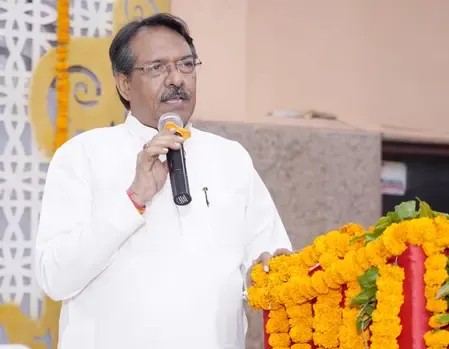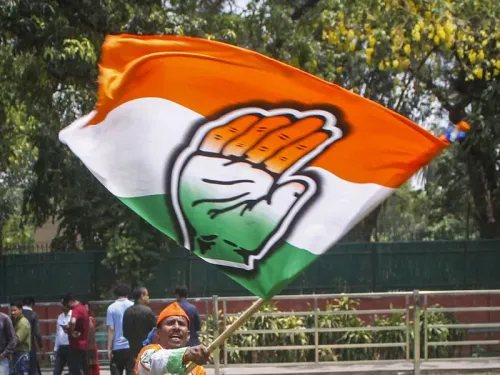Will MoS Harsh Malhotra Unveil the 100-Day Report Card of Delhi Assembly Tomorrow?

Synopsis
Key Takeaways
- Release of 100-day report card showcasing achievements.
- Focus on transparency and accountability in governance.
- Commitment to gender-neutral terminology in legislative language.
- Significant reforms achieved in first 100 days.
- Shift towards a more structured legislative calendar.
New Delhi, June 5 (NationPress) The Union Minister of State for Road Transport and Highways, Harsh Malhotra, is set to unveil the 100-day report card of the Eighth Delhi Legislative Assembly on Friday, as confirmed by an official.
This report card has been meticulously crafted to highlight the milestones, decisions, and reforms achieved by the Assembly during its initial 100 days, according to sources from the Assembly secretariat.
Joining him at the event will be Speaker Vijender Gupta, Legislative Affairs Minister Parvesh Verma, and Deputy Speaker Mohan Singh Bisht.
Speaker Gupta previously noted the significant accomplishments of the legislature, including the presentation of CAG reports, initiatives for paperless operations, advancements in solar power generation, and the restoration of parliamentary traditions within the Delhi Assembly during these first 100 days, which concluded this Wednesday.
Moreover, Gupta mentioned plans to review and amend Rule 280 of the Rules of Procedure to align with the practices observed in the Lok Sabha and Rajya Sabha, in line with the Government of National Capital Territory of Delhi (Amendment) Act, 2021.
This review will also aim to enhance legislative language and adopt gender-neutral terminology, showcasing the Assembly's commitment to inclusivity, clarity, and equality in its operations.
He emphasized that a series of groundbreaking reforms and achievements have been logged within this brief 100-day period.
The forthcoming publication will act as both a historical record and a testament to the Assembly’s commitment to transparency, accountability, and reform-oriented governance.
Furthermore, Gupta stated that the Assembly successfully conducted two full sessions, a significant change from the previous norm of just one session annually.
In total, the House held 12 sittings and engaged in legislative business for 46 hours and 16 minutes, marking the longest legislative activity seen in the past 25 years.
On multiple occasions, the proceedings extended beyond the usual hours, continuing until 7 p.m.
Notably, the House is now being prorogued instead of adjourned sine die, illustrating a shift towards a more structured and accountable legislative calendar.










